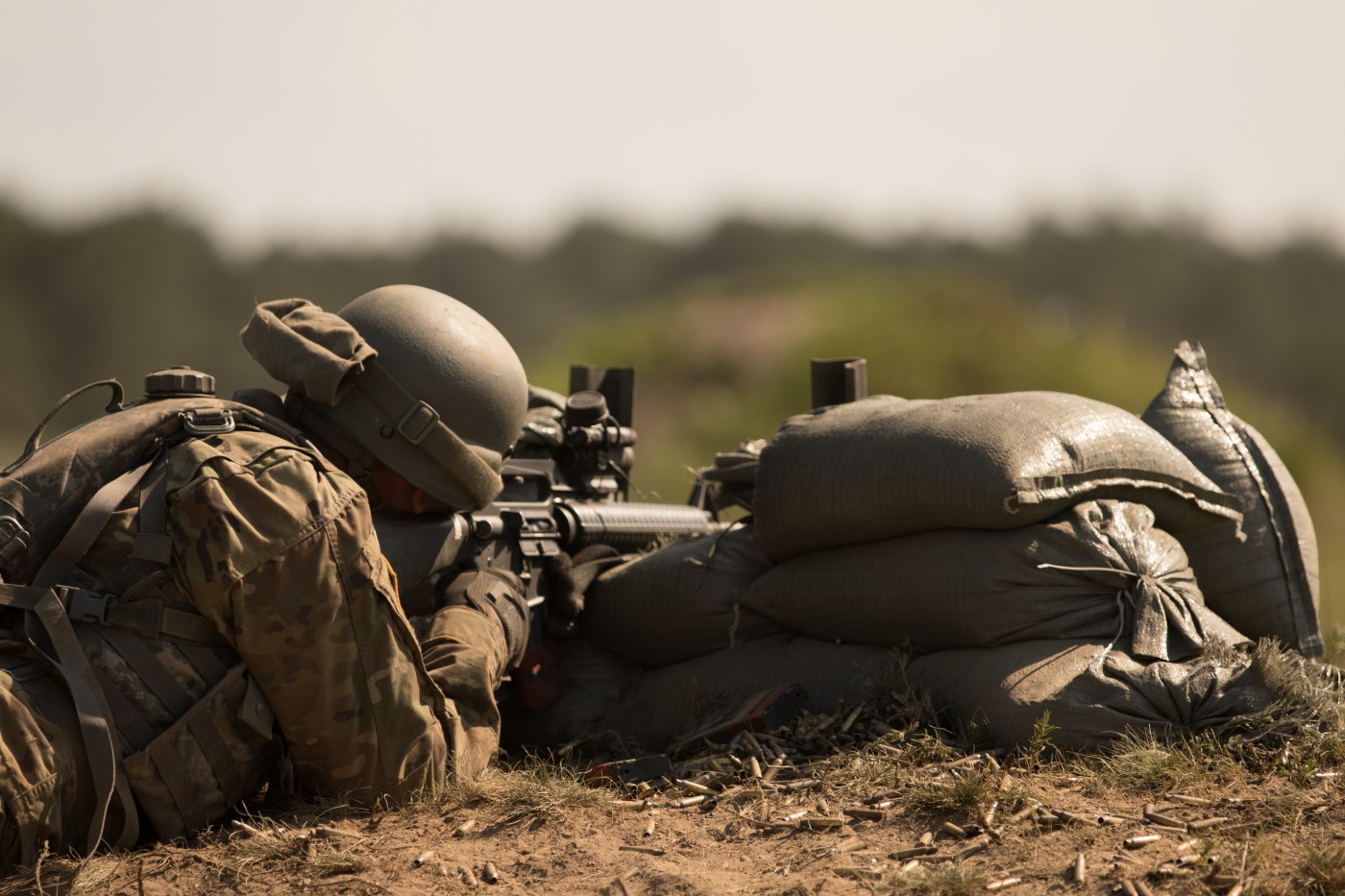
McGinn: Gun range a necessity at Cape’s Camp Edwards
The Massachusetts National Guard has long been there for the Commonwealth.
For example, during the recent COVID-19 pandemic, Massachusetts National Guard delivered food, assisted at hospitals, staffed testing centers and even drove school vans.
But the National Guard’s primary mission is to be prepared to fight and win our nation’s wars. This means part-time soldiers and airmen must meet the same readiness standards in 39 training days a year that their active-duty counterparts have 365 days a year to achieve.
The National Guard training challenge means trainers must squeeze as much as possible out of precious little time. Critical to this is close access to training facilities, such as a multipurpose machine-gun range necessary to fulfill yearly required primary weapons qualification.
You should always train the way you fight, and lessons learned on the modern battlefield have moved U.S. Army leaders to make weapons qualification more like actual combat. The goal is to give soldiers the best possible chance to accomplish their mission and return home safely.
As part of the Army, the Army National Guard has adopted the service’s new training doctrine. The problem is that some older ranges, like those in Massachusetts, can’t safely accommodate the new weapons qualification procedures.
This requires Massachusetts Army National Guard soldiers to travel out of state. The closest suitable range is in Vermont, nearly 300 miles away. The two days on the road squanders precious training time while increasing planning, logistics and cost. It also places unnecessary stress on their home life.
Officials at Camp Edwards on Joint Base Cape Cod recognized the challenge several years ago and developed an environmentally sound plan to construct a suitable range. The former Known-Distance Range would be repurposed and expanded to meet the new Army requirements.
The Massachusetts National Guard has worked with the U.S. Environmental Protection Agency since 2018, even scaling back its proposal to allay concerns, while preserving the integrity of the range.
The EPA noted in draft findings released earlier this year that National Guard units at JBCC “have diligently worked, over decades, to train soldiers, while, at the same time, partnered with state and federal agencies to investigate environmental conditions, assess data, and conduct clean ups, where necessary, to protect and sustain the Cape Cod Aquifer.”
In fact, the Guard and JBCC have been contributing members of the community for decades and since 2015 have conducted weapons training with the support of the Environmental Management Commission and the EPA. It is why JBCC and Massachusetts National Guard officials have recognized and responded to concerns raised by some in the community and the EPA.
I am familiar with the base and the surrounding community, having been the commander of Camp Edwards from 2008 to 2010.
Small-arms and automatic weapons have been fired for more than 100 years at Camp Edwards and numerous studies conducted over the last three decades show small-arms fire does not contribute to groundwater contamination of the Bourne Lens located at Camp Edwards.
Sadly, groundwater quality concerns persist in some communities surrounding JBCC due to various causes. Environmental organizations have identified causes ranging from lawn fertilizer to bacteria from sewage run-off seeping into the water table. However, small-arms and automatic-weapons fire is not a contributor to the contamination found in the sole-source aquifer.
The EPA stated as much in their five-year review of environmental efforts on JBCC published in 2023. In considering the “risk” posed to the Cape Cod Aquifer by the new range, the EPA considered numerous external factors, including climate change and preexisting contamination.
The need for the range is clear. So is its lack of adverse impact on the local environment. Still, the range is no closer to reality than it was when it was first envisioned.
The real obstacle is simply a few determined local residents who are using the environmental review process as a mechanism to thwart any new activity on Camp Edwards.
Camp Edwards has been on Cape Cod for more than a century. It’s not going away. Neither is the need to train the Massachusetts National Guard for an increasingly dangerous world.
Maj. Gen. Francis McGinn is president of the National Guard Association of the United States
An aerial view of the site the new gun range would be constructed on.at Camp Edwards. (Photo courtesy massnationalguard.org)


